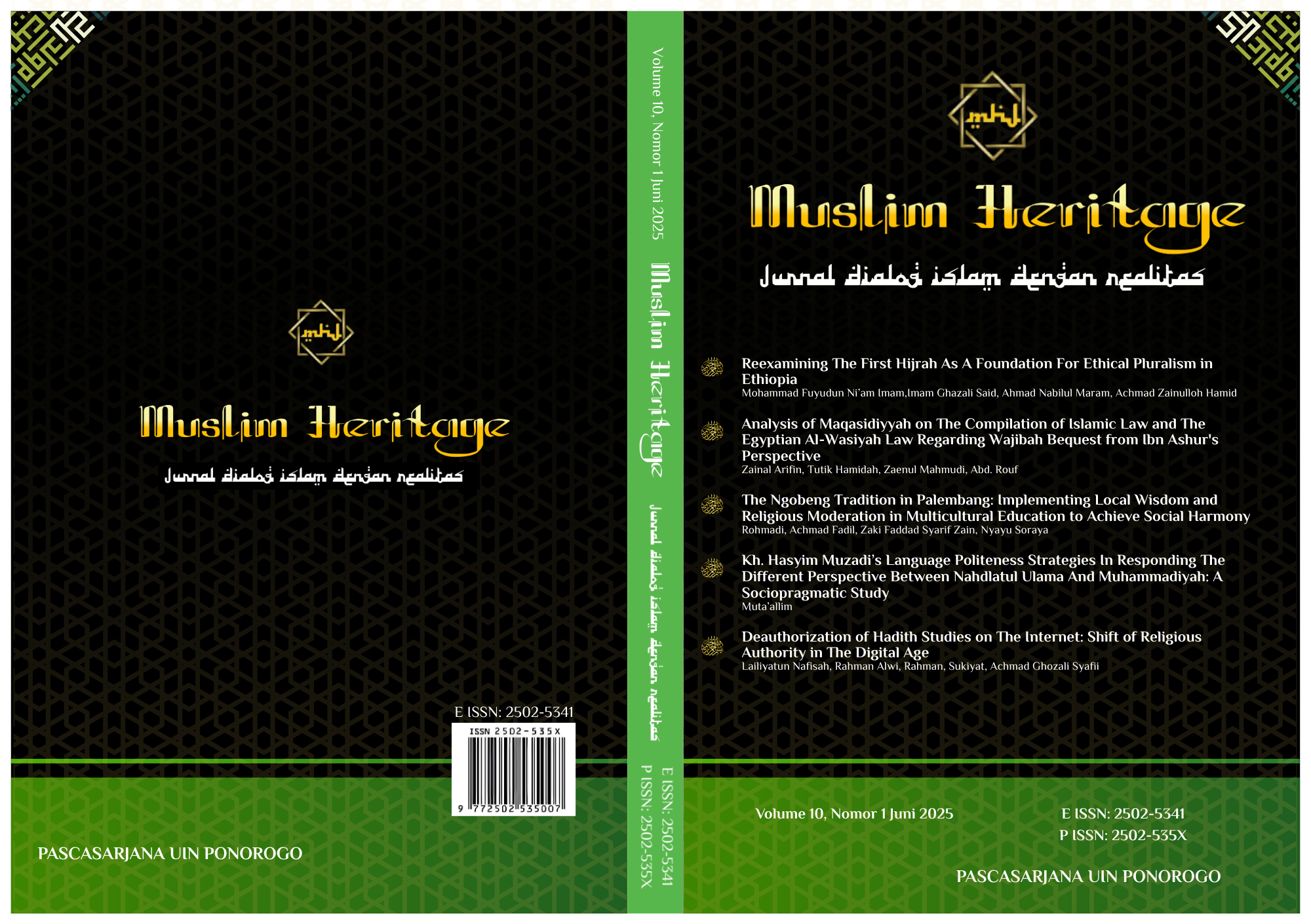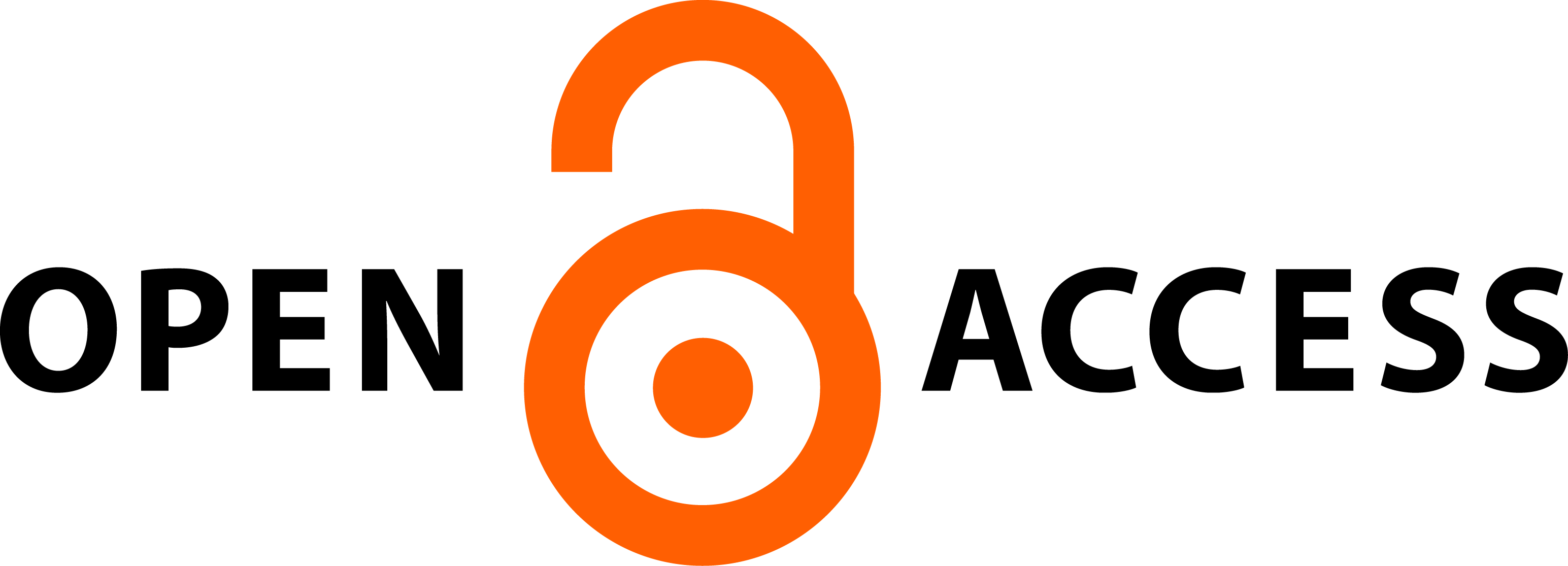Deauthorization of Hadith Studies on The Internet: Shift of Religious Authority in The Digital Age
DOI:
https://doi.org/10.21154/muslimheritage.v10i1.10633Abstract
The development of the internet has brought about changes in various aspects of life, including in the field of hadith studies. One of the highlights of this article is the concept of the authority of the actor who conveys the content of the hadith. In addition, people have come to rely on the internet as a place to find information, including about religion, in order to solve a problem. This study aims to find out how the phenomenon of deauthorization of hadith found on the internet by looking at the concept of authorization of hadith in the Islamic tradition. Deauthorization is a shift characterized by the birth of a new authority outside the established traditional authority. The approach of this study is a literature review using the method of data analysis in descriptive form. The results of this study show that digital technology has changed the transmission, access, and interpretation of hadith, indicating a shift from traditional authority to a participatory model and highlighting epistemological changes that broaden hadith studies while encouraging more adaptive hadith learning strategies in the digital age.
Abstrak
Perkembangan internet telah melahirkan berbagai perubahan dalam berbagai aspek kehidupan, termasuk dalam bidang kajian hadis. Salah satu yang menjadi sorotan dalam artikel ini adalah konsep otoritas pelaku yang menyampaikan kandungan hadis. Selain itu, masyarakat telah mengandalkan internet sebagai tempat untuk mencari informasi, termasuk tentang agama, dalam rangka menyelesaikan suatu permasalahan. Penelitian ini bertujuan untuk mengetahui bagaimana fenomena deauthorisasi hadis yang terdapat di internet dengan melihat konsep otorisasi hadis dalam tradisi Islam. Deauthorisasi adalah pergeseran yang ditandai dengan lahirnya otoritas baru di luar otoritas tradisional yang sudah mapan. Pendekatan penelitian ini adalah tinjauan literatur dengan menggunakan metode analisis data dalam bentuk deskriptif. hasil penelitian ini menunjukan bahwa teknologi digital telah mengubah transmisi, akses, dan interpretasi hadis, yang mengindikasikan adanya pergeseran dari otoritas tradisional ke model partisipatoris dan menyoroti perubahan epistemologis yang memperluas studi hadis sekaligus mendorong strategi pembelajaran hadis yang lebih adaptif di era digital.
Keywords: Deauthorization; Hadith; Religious Authority; Digital Age
Downloads
Published
Issue
Section
License

This work is licensed under a Creative Commons Attribution-NonCommercial 4.0 International License.
Requirements to be met by the author as follows:
- Author storing copyright and grant the journal right of first publication manuscripts simultaneously with licensed under the Creative Commons Attribution License that allows others to share the work with a statement of the work's authorship and initial publication in this journal.
- Authors can enter into the preparation of additional contractual separately for non-exclusive distribution of a rich version of the journal issue (eg:post it to an institutional repository or publish it in a book), with the recognition of initial publication in this journal.
- Authors are allowed and encouraged to post their work online (eg, in institutional repositories or on their website) prior to and during the submission process, because it can lead to productive exchanges, as well as citations earlier and more severe than published works. (see The Effect of Open Access).

















